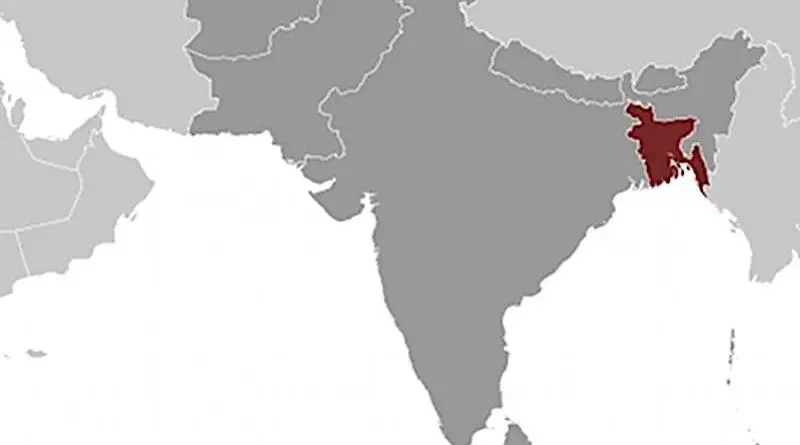The Paradox Of Padma River Bridge Funding Decision In Bangladesh – OpEd
By Iqbal Ahmed
Despite its commitment, the World Bank has cancelled the funding of $1.2 billion for the Padma River bridge project in Bangladesh. The Bank’s action is deliberate but its motive is unclear. In its June 29 announcement, the Bank cites “high-level” corruption among individuals involved with the project. It is a claim that does not tell the whole story alone.
The allegation
The government of Bangladesh was caught off guard with the Bank’s revelation. The Bank claims a former Communications Minister of Bangladesh, Abul Hossain, used his power to award the contract to a Canadian engineering company, SNC Lavalin, for his personal gain. The Bank also implicates officials of the engineering company for taking bribes.
In response to Bank’s inquiry about these allegations, Bangladesh government furnished findings of corruption in 2011 and 2012. The minister was also dismissed from the cabinet. Yet, the Bank blames Bangladesh government of being “nonresponsive.” The Bank, on the other hand, has provided “evidence of corruption” only.
According to Priyo News, “WB cannot itself disclose the reports because it has an obligation to each member country — including Bangladesh — to maintain all referral reports confidential.” The allegations, moreover, have not been legally proven.
This chain of events illustrates a paradox between Bank’s motive and action. What really prompted the Bank to pull the plug from the 6.1km bridge project, largest in Bangladesh, is unclear. But speculations abound. For example, the rift between Nobel Laureate Professor Yunus and Prime Minister Hasina has dominated the Bangladesh media as a leading cause of the funding fallout.
According to Indian Express, the decision to cancel the funding “surprised most analysts and graft watchdogs… the Berlin-based global graft watchdog Transparency International Bangladesh called the World Bank decision “questionable and disappointing.”
The murky policy of lending
Would the Bank have taken an action in a similar fashion against India or Brazil? Its polemic lending practice for the development projects such as building infrastructure in many developing countries is not without controversy. The Bank often attaches stringent loan stipulations and conditions generally known as “covenants.” They tend to dictate what the weaker countries can and cannot do. Ironically, as the power shift continues and the weaker countries becomes economically solvent, these “covenants” may soon become culpable to the H Street policy makers.
Time to clean up
Bangladesh government needs to clean up the mess of widespread corruption. If it wants to successfully undertake and implement future development projects in collaboration with the multinational agencies, the government must first ensure accountability and transparency against corruption from within. And the government must repair its relationship with the Bank.
To start off, it should open up a dialogue with the Bank’s high-ranking administrators to come up with mutually agreeable loan procurement systems, which would include government’s explicit commitment against corruption and favoritism. It is, perhaps, too late to get a reversal on the Bank’s decision but it has been done before.
Ellen Goldstein, the Bank’s Country Directory, has said, “the World Bank has a few precedents in its history of reinstating a cancelled loan in other countries, so it is technically possible.” The murky climate surrounding the whole issue, however, looks too grim for that possibility.
Going forward, the Bangladesh government needs to proactively assess the logistics and credibility of the future loan development projects and it must ensure effective utilization of contracts and loans through carefully orchestrated government-backed negotiations among private entities, individuals, and the Bank.
The critical mass
Caught in the middle of this mess between the Bank and the Bangladesh government are some 30 million people who desperately need the bridge. Bangladesh may not have the influence and the credibility as fortuitous as other strategic nations in South and Southeast Asia, but she has gained robust evidence of social and economic developments during the last 10 years. This momentum cannot be ignored by the administrators of the Bank. Nor should they continually regard Bangladesh as a minnow.
The case of corruption in Bangladesh is a legitimate claim by the Bank. But its actions should not be based on allegations alone. Facts and evidence must be presented justifiably and legally. Only then can Bangladesh accept or expect repercussions. Before that happens, Bangladesh have the right to surge ahead with every prospect of economic and social progresses that have already empowered lives of many in a nation of 160 million.


Bangladesh do not need money from world Bank any way , now it doesn’t matter how we will build the bridge , for all of you who are asking us to clean up our mass , to you mine your own business and lets us take care ourselves .